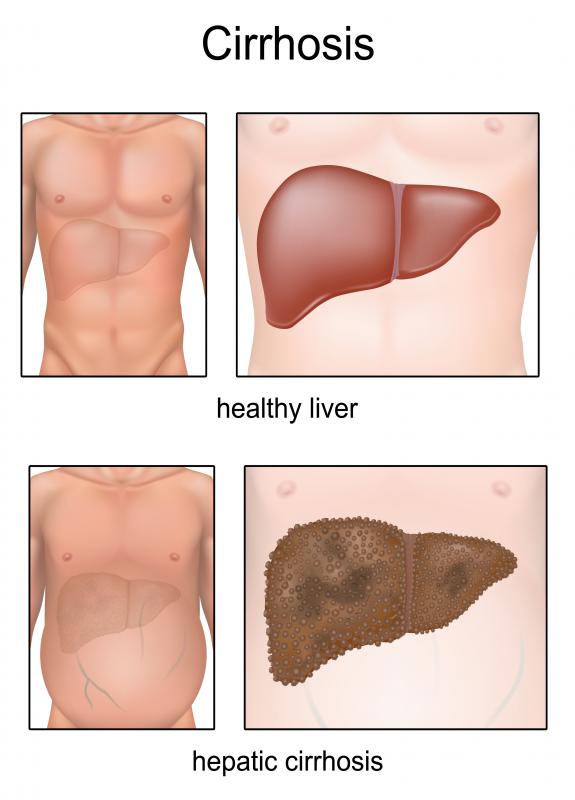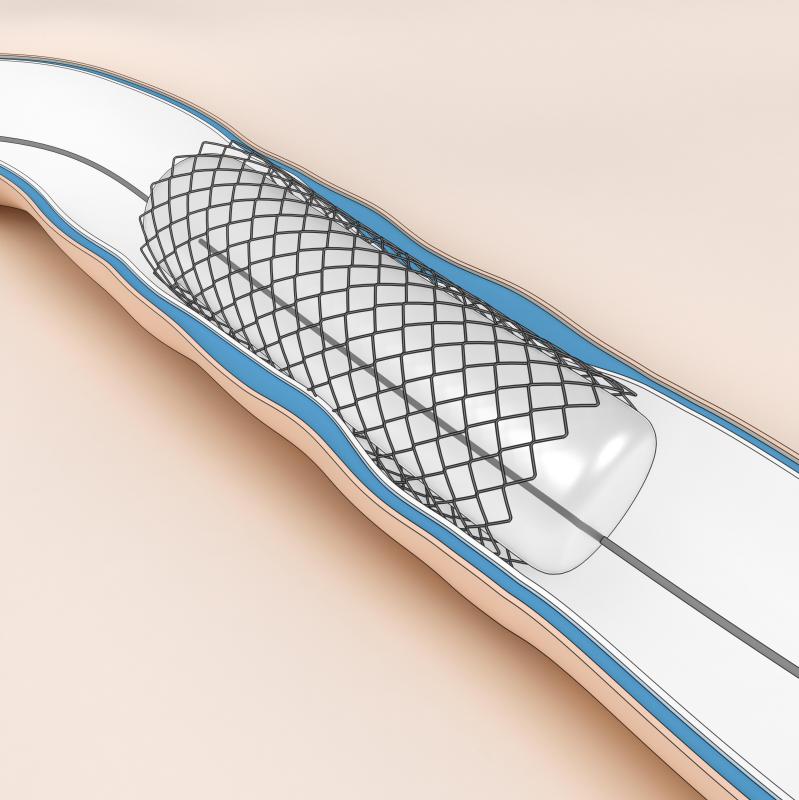At TheHealthBoard, we're committed to delivering accurate, trustworthy information. Our expert-authored content is rigorously fact-checked and sourced from credible authorities. Discover how we uphold the highest standards in providing you with reliable knowledge.
What is Pancreatic Ascites?
Pancreatic ascites refers to fluid that accumulates in the abdomen that is related to a dysfunctional pancreas. Analysis of pancreatic ascites fluid typically reveals a high level amylase and high levels of protein. The abdomen that is affected by ascites appears distended and an increase in abdominal girth is often present. Generally, severe pain is absent, however, weight loss may occur, in spite of the appearance of a large abdomen. This condition is more common in men, and generally appears between ages 20 and 50.
Typically, a past history of pancreatitis is usually present, and alcohol comsumption is also common with patients who suffer pancreatic ascites. Diagnosis to rule out underlying causes of pancreatic ascites include a comprehensive physical examination and complete medical history. Frequently, the physical examination will reveal abdominal distention, shifting dullness, and flank dullness. Medical imaging tests may reveal fluid in the abdomen, pancreatic calcifications, and pseudocysts.

Treatment options for pancreatic ascites include conservative treatment or surgical intervention. Generally, conservative options include administering parenteral nutrition and draining excess fluid. Surgery for the problem may include repairing the leak of fluid and managing pancreatic pathology, such as strictures and pseudocysts. Sometimes the use of a pancreatic stent will prove beneficial. These stents allow secretions to flow down the system that has been created per the stent, sealing the leak.

It is important to note that ascites or fluid in the peritoneal cavity can be caused by other medical conditions other than a diseased pancreas. Certain peritoneal cancers, such as ovarian cancer can cause a significant buildup of fluid, as can certain liver disorders. Cirrhosis of the liver can sometimes cause ascites, however, cirrhosis typically causes other symptoms such as jaundice, which is a yellowing of the skin and eyes, nausea, and pain.

When pancreatic ascites is present, treating the underlying cause of the fluid accumulation is important. In cases where pancreatitis is present, steps should be taking to reduce the primary symptoms such as pain, nausea, and vomiting. When symptomatic relief is obtained, the patient may be better able to tolerate the actual treatment of pancreatic ascites. Generally, treating the fluid buildup without treating the underlying cause may weaken the patient and depress his or her immune system.

Individuals who begin to notice an increase in abdominal girth, along with abdominal distention, should immediately seek a medical evaluation. Failure to receive a definitive diagnosis and subsequent treatment could delay resolution of this condition, and contribute to complications such as difficulty breathing. Shortness of breath and labored breathing may be significant as fluid in the abdominal cavity builds up, exerting pressure on other structures, including the diaphragm.
AS FEATURED ON:
AS FEATURED ON:
















Discussion Comments
I have been diagnosed with chronic pancreatitis after four years of alcohol misuse. I was diagnosed with SLE in 1987. I have been treated with Immunosuppressants and steroid therapy at this time. I have developed nephrotic disease over this period. Now I don't drink alcohol, and haven't for eight months. I think I'm experiencing pancreatic ascites with associated shortness of breath, ankle swelling, fluid atop and below eyes with abdominal extension. Do you think it may be pancreatic ascites? I am sick of feeling this way.
I don't think there's ever any kind of pancreatic disorder that's easy to treat, or that doesn't usually mean a more serious disorder is present. I think a pancreas is either healthy or it isn't. There's not much of an "in between" stage, it's so difficult to treat pancreas disorders and they heal so slowly.
A friend's husband had this after a bout with severe pancreatitis. He lost something like 50 pounds -- and he didn't have it to lose. Then, he got the swelling. He finally had surgery that helped correct the issue with the pancreas and he was much better after he recovered -- which took a while.
Post your comments